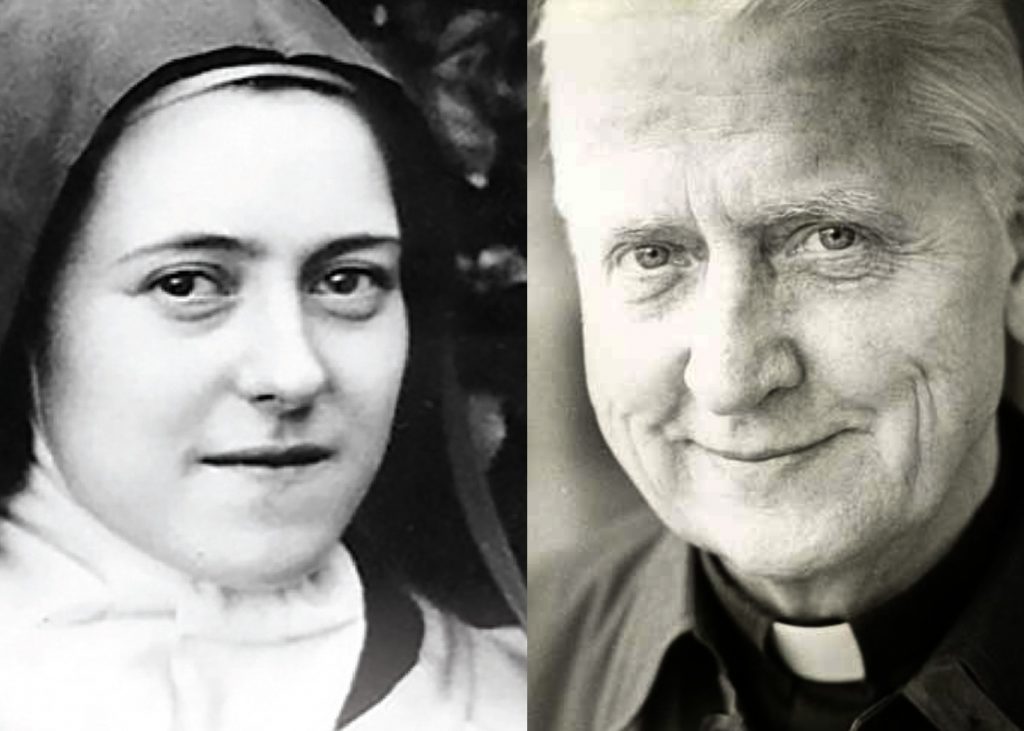“Are you doing your spiritual reading?”
My spiritual director asks me this every time we meet. I’m sorry to report that the answer isn’t always yes. Sometimes my day feels like an impossibly tall mountain of duties and responsibilities that I’m barely able to scramble over.
But when I do finally open that book on my night table and start tracing the path of another’s soul over their own mountain and toward heaven, I’m filled with hope. I meet men and women, even children, who in this hard world have taken the poor human material they are made of and handed it to God, who in turn makes something glorious out of it.
Reading about them or reading their own account of their spiritual path and the obstacles they overcame opens new horizons for me. Suddenly my own obstacles appear as paltry as they are, and my efforts as feeble. More importantly, I feel great hope. Truly there is nothing wrong with me that God can’t transform, if I let him — there’s no bravery I’m not capable of, if I surrender myself to his divine will.
To that end, the last two books I’ve read have been particularly inspiring. One is an account of St. Thérèse of Lisieux’s life in the convent written by her sister; the other is a spiritual autobiography by Father Walter Ciszek, a Jesuit who during the early years of the Cold War spent five years in the infamous Soviet Lubyanka prison, followed by several more in a Siberian labor camp on a trumped-up charge of being a “Vatican spy.”

The pair made for an unlikely couple on my nightstand. “My Sister, St. Therese'” recounts a few short years in the life of a delicate young woman immured in a French convent, each day a quiet round of prayer, liturgy, and chores. “He Leadeth Me” is the story of an intrepid missionary who journeyed far from home to insert himself into one of the darkest and most evil episodes of the blood-drenched 20th century.
The quiet, young Carmelite and the enslaved, famished priest led widely divergent lives in the material sense, but in a spiritual sense were very similar. It is as if the outward things, the times and places, the circumstances, are the colored threads at hand, carefully woven into that seamless garment we call holiness, which similarly clothes each perfected saint.
Each book tells the story of a human heart struggling to surrender to the will of God. Each one makes a great initial leap: one into the cloister of Carmel, the other into the maw of the Soviet wolf. There is that initial surrender accompanied by great certainty and even a sustaining romance. And then, that difficult, seemingly terrible necessity of the daily abandonment to the incomprehensible will of God.
In St. Therese, we read of the way God allowed her soul, during her terrible illness, to be filled by a pitch-black darkness in which every certainty of heaven left her. Even the thought of heaven tormented her. Her cheerful, childlike faith deserted her completely, just when she most needed it. For Father Ciszek, the way the same God who sent him to Russia to minister as a priest allowed him, for years, to live in torturous circumstances. God’s will for him? Fifteen hours a day of brutal, degrading work, on scant food and in the arctic cold, and only intermittently able to exercise his priestly ministry.

How did they weave these strange threads into their garments of holiness? St. Thérèse learned to accept the darkness as a merciful gift from God. He was allowing her to die entirely entwined with Christ on the cross, even to the point of tasting the torture of abandonment that he experienced. By embracing his will, she was able to respond not with bitterness but with an unquenchable love.
As for Father Ciszek, he learned to identify with Christ the working man, not the wonderworker or preacher. Just as Christ worked day after day at hard and humble labor for more than 20 years, so would Father Ciszek work. Just as Christ treated work not as a punishment but a holy sharing in God’s work of redemption, so would the prisoner-priest.
Each of us is set our own fabrics to weave, and with nothing but the very threads of our lives before us. Reading the stories of those who have made a whole shining cloth from strange and shocking threads helps me immensely. I don’t always know why God has put some hard things before me. But I know that I’m meant to take them up and work them in. His grace will make my garment beautiful, if I let him.

